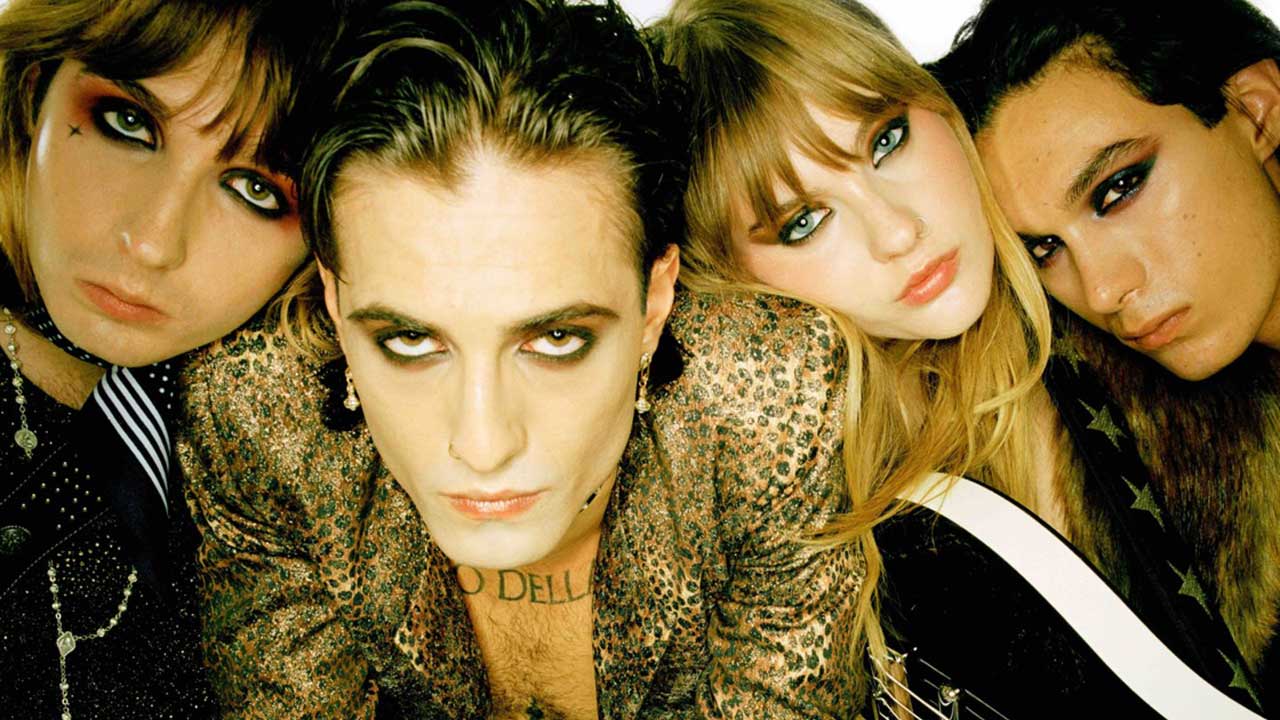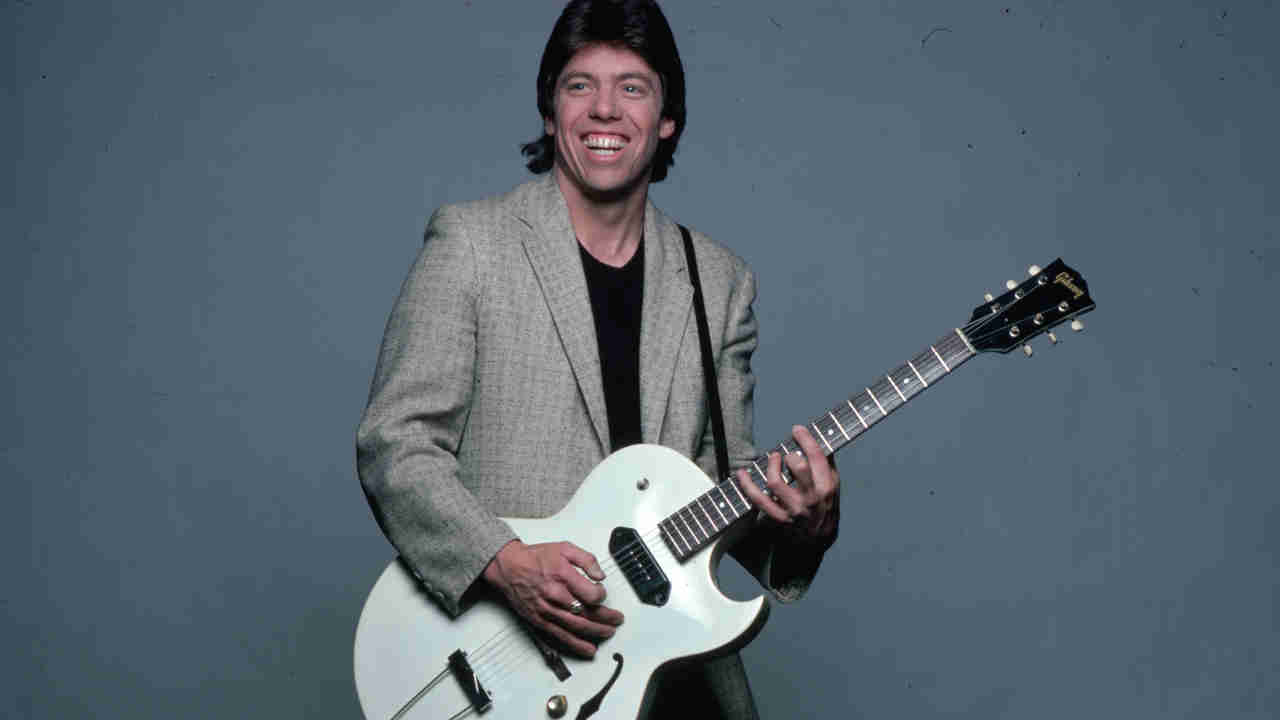How Måneskin embraced Reality TV, Eurovision and TikTok to become rock's hottest property
The extraordinary rise of Italian glam rockers Måneskin is evidence of a new kind of rock star career trajectory

Select the newsletters you’d like to receive. Then, add your email to sign up.
You are now subscribed
Your newsletter sign-up was successful
Want to add more newsletters?

Every Friday
Louder
Louder’s weekly newsletter is jam-packed with the team’s personal highlights from the last seven days, including features, breaking news, reviews and tons of juicy exclusives from the world of alternative music.

Every Friday
Classic Rock
The Classic Rock newsletter is an essential read for the discerning rock fan. Every week we bring you the news, reviews and the very best features and interviews from our extensive archive. Written by rock fans for rock fans.

Every Friday
Metal Hammer
For the last four decades Metal Hammer has been the world’s greatest metal magazine. Created by metalheads for metalheads, ‘Hammer takes you behind the scenes, closer to the action, and nearer to the bands that you love the most.

Every Friday
Prog
The Prog newsletter brings you the very best of Prog Magazine and our website, every Friday. We'll deliver you the very latest news from the Prog universe, informative features and archive material from Prog’s impressive vault.
On paper, none of these individual career flashpoints would suggest longevity of any sort for a rock band: appearing on The X Factor before having signed a record deal; being the Italian entry for Eurovision; having a cover of a song over half a century old go viral on TikTok.
On their own, any one of these could dramatically cut the shelf life of a music career as they are typically viewed as frivolous short-term gains that set bombs under long-term career prospects.
Yet these have all, cumulatively, helped make Måneskin one of the biggest breakthrough rock acts of recent years and enabled them to comfortably leapfrog the foredoomed status of one-hit wonder.
TV singing competitions and TikTok might be viewed in some circles as the very antithesis of credibility and authenticity – a calculating route to temporary success that avoids the over-romanticised notion of having to “pay your dues” (i.e. being stuck in a tiny van and playing to 15 people a night for several years). This, however, is a very myopic view of how the modern music business works and how new acts have to work a whole new set of tools to their advantage.
In that sense, Måneskin are the perfect metonymy for a new type of career path – one that will lean on an element of the old approaches (music press coverage, specialist radio plays and slogging around the live circuit) but not be beholden to any of them. They are, in many ways, an utterly modern confection and indicate where some, but not all, of the rock stars of tomorrow will first bubble up.

The brief synopsis of Måneskin's career is that they formed in Rome in 2015 while all in their teens. They quickly realised that local “battle of the bands” competitions were not going to put a rocket under their career and that they needed to do something out of the ordinary to get noticed at home; they could hopefully then parlay that into international recognition.
In 2017, they entered the Italian franchise of The X Factor and came second. They signed to Sony Music and the track they auditioned with, the appositely titled Chosen, became their debut single and had chart success in Europe, with subsequent singles boosting their profile and allowing them to do a 70-date tour of the continent in 2019.
Sign up below to get the latest from Classic Rock, plus exclusive special offers, direct to your inbox!
Bassist Victoria De Angelis described their appearance on The X Factor as “a sea change in our lives” as it “allowed us to reach a wider audience for the first time”.
During their stint on The X Factor, they covered tracks by The Killers and Franz Ferdinand as well as Beggin’, a hit originally for the Four Seasons in 1967. None of these were predictable songbook choices for a “typical” rock band but they showed the range of Måneskin’s influences and were also a deft way to make connections with different audiences and different age groups simultaneously.
Their next big gamble/stroke of genius [delete as applicable] was to represent Italy in this year’s Eurovision Song Contest.
In the 1970s, 1980s and 1990s, competing in Eurovision would have narrowed your career options to pop, balladry or cabaret – or all three. Yet the landmark win in 2006 for Lordi showed that the theatricality of metal could be recontextualised for this long-standing TV format and become a catalyst for international success.
While such a career plan might have seen you sanitised and gelded to an extent – corralling you alongside such notorious pop reprobates as Dana, Nicole, Bucks Fizz and Katrina & The Waves – a typically hysterical tabloid story exploded around them which gave them a hedonistic and iconoclastic edge, if only unintentionally and fleetingly. It was claimed frontman Damiano David had taken drugs on camera during the competition but, as a subsequent inquiry found, nothing of the sort had happened. What could have been a career-ending incident actually turned out to provide, even if only by proxy, an element of grit that the Eurovision is supposed to grind down.
What also could have been a hubristic sign that the wheels were coming off occurred immediately after Eurovision when they split with their manager of four years, Marta Donà, founder and CEO of LaTarma Management. Yet the Måneskin juggernaut showed no signs of slowing down.
Their Eurovision boost coincided with their cover of Beggin’ (which they had performed on The X Factor) achieving that rare feat of going viral on TikTok, even though the band were not officially on the app at this point.
It was not quite virality on the scale of Fleetwood Mac’s Dreams, but it became the biggest hit on TikTok in the UK this summer, with over 9 million creations using their recording and 3.7 billion views of the #Maneskin hashtag on the platform by late August. It snowballed from there and by December it had become the second-most popular track of the year on TikTok globally.
“Organic” is an increasingly meaningless word in the world of marketing, but success on TikTok – genuine lasting success – cannot be cooked up; it has to happen naturally. With over a quarter of users on TikTok being under the age of 18 (and almost two-thirds being under the age of 30), they can smell out contrivance really quickly and cut the faux-organic off at the roots.
Success on TikTok can also fuel success on streaming platforms and, given there were on average 60,000 new tracks a day being added every day to Spotify in February (that number is more realistically 75,000 now), any help to stand out above the crowd is essential here.
Måneskin have comfortably made that transition into streaming, with the band having 29.1 million monthly listeners on Spotify. To give some context here, the acts they covered on the X Factor in Italy pale by comparison. The Killers have 17.2 million monthly listeners and Franz Ferdinand have 5.1 million monthly listeners.
Even legendary metal bands are choking on their digital dust – with Iron Maiden only having 6.4m monthly listeners on Spotify, Rammstein having 6.8 million monthly listeners and Metallica having 17.3 million monthly listeners. Their hard rock Eurovision compatriots Lordi have a mere half a million monthly listeners on Spotify.
They have also had their song Zitti e Buoni featured in a commercial for Pepsi, typical of most acts today who fully understand a brand sync is part and parcel of modern promotion and not the “sell out” it was seen as in the 1960s.
After tickets for their February 2022 show at the Brixton Academy in London (capacity: just under 5,000) were put on sale, they were all gone in 25 minutes. They also opened for The Rolling Stones in Las Vegas in November – as perfect a symbolic meshing of rock ’n’ roll ambition with showbiz plasticity as you are ever likely to find.
Of course, any act now sitting down and carefully plotting out how to “do a Måneskin” by copying them is doomed to failure. Breaking through is a combination of talent, the right marketing for that particular moment and a huge chunk of serendipity. And usually a lot of money.
Måneskin represent one example of having all these different parts align, but it would be both impossible and foolhardy to treat this as a fresh template for success.
They might represent a new type of rock star career trajectory, but trying to duplicate it line by line will have as much success as a band in 1963 growing their hair a bit, playing The Cavern and then thinking that will make them The Beatles. That particular lightning will only be caught in a bottle once.
